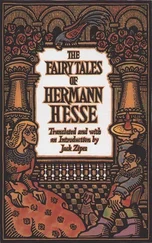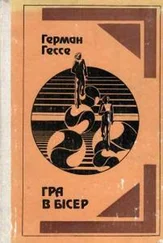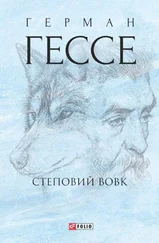Meanwhile Rajah Govinda sat in his own capital, listening to the bidding of the mother of Nala, the slain seducer of evil memory. Govinda’s incursions and challenges were growing ever more frequent and brazen. Only an alliance with the powerful Rajah of Gaipali could have made Dasa strong enough to enforce peace and neighborly relations. But this Rajah, although he was well disposed toward Dasa, was Govinda’s kinsman and had politely repulsed all efforts to win him over to such an alliance. There was no escape, no hope of sanity or humanity. The fated outcome was drawing nearer and would have to be undergone. Dasa himself almost longed for the war now. If only the accumulated lightnings would strike; if only the calamity would come speedily, since it could no longer be averted.
Once more he paid a visit to the Rajah of Gaipali and exchanged fruitless courtesies with him. In his council he urged moderation and patience, but by now he was doing so without hope. For the rest, he improved his armaments. The council was divided only on the question of whether to respond to the enemy’s next raid with invasion of his territory and outright war, or whether to await his major offensive, so that the people and all neutrals would see who was truly guilty of violating the peace.
The enemy, unconcerned with such questions, put an end to reflection, discussion, and hesitation. One day he struck. He staged a major raid which inveigled Dasa, along with the cavalry captain and his best troops, into rushing to the frontier. While they were on the way, Govinda’s main force invaded the country, stormed the gates of Dasa’s capital, and besieged the palace. As soon as Dasa heard the news he turned back. He knew that his wife and his son were encircled in the palace, and that bloody battles were raging in the streets of the city. His heart pounded with fury and sorrow when he thought of his loved ones and the dangers that faced them. Now he was no longer a reluctant and cautious commander. He burned with anguish and rage, urged his men homeward in wild haste, found the battle surging through the streets, cut his way through to the palace, confronted the enemy and fought like a madman until, at twilight on that bloody day, he collapsed exhausted, bleeding from several wounds.
When he recovered consciousness, he found himself a prisoner. The battle was lost. City and palace were in the hands of his enemies. Bound, he was taken before Govinda, who greeted him disdainfully and led him into one of the other rooms of the palace. It was the room with the carved and gilded walls where Dasa kept his scrolls. Here, sitting bolt upright on one of the rugs, stony-faced, was his wife Pravati. Armed guards stood behind her. Across her knees lay their son. Like a broken flower that frail body lay dead, face gray, his garments soaked with blood. The woman did not turn when her husband was led in. She did not see him; she sat staring expressionlessly at the small corpse. But she seemed to Dasa strangely transformed. It took a while before he realized that her hair, which only a few days before he had seen raven black, was now everywhere shot through with gray. She seemed to have been sitting that way for a long time, the boy on her lap, numbed, her face a mask.
“Ravana!” Dasa exclaimed. “Ravana, my child, my flower!” He knelt. His face fell forward upon the dead boy’s head. As if in prayer he knelt before the mute woman and the child, mourning both, paying homage to both. He smelled the odor of blood and death, mingled with the fragrance of the aromatic pomade on the child’s hair.
With numbed gaze Pravati stared blankly down at the two of them.
Someone touched his shoulder. It was one of Govinda’s captains, who ordered him to stand up. The soldiers led him out. He had not addressed a word to Pravati, or she to him.
Bound, he was placed on a wagon and taken to a dungeon in Govinda’s capital. There his fetters were partly loosened. A soldier brought a jug of water and put it on the stone floor. The door was closed and barred, and he was left alone. A wound on his shoulder burned like fire. He groped for the water jug and moistened his hands and face. He wanted to drink, but forbore; this way he would die faster, he thought. How much longer would it take, how much longer! He longed for death as his parched throat longed for water. Only death would still the torture in his heart. Only then would the picture of the mother with their dead son be erased. But in the midst of his agony, merciful weariness and weakness overcame him. He sank down and fell asleep.
When he returned hazily to consciousness after this brief slumber, he tried to rub his eyes, but could not. Both hands were occupied, were holding something tightly. When he took heart and forced his eyes open, he saw that he was no longer surrounded by dungeon walls. Greenish light flowed bright and strong over leaves and moss. He bunked several times. The light struck him like a fierce though noiseless blow. A twitch of horror, a shudder of fear, passed through the nape of his neck and down his spine. Once more he blinked, screwed up his face as if he were weeping, and opened his eyes wide.
He was standing in a forest, holding in both hands a gourd full of water. At his feet the basin of a spring reflected browns and greens. Beyond the fern thicket, he recalled, stood the hut and the waiting yogi who had sent him to fetch water, who had laughed so strangely and whom he had asked to teach him something about Maya.
He had lost neither a battle nor a son. He had been neither a rajah nor a father. Rather, the yogi had granted his wish and taught him about Maya. Palace and garden, library and aviary, the cares of sovereignty and paternal love, war and jealousy, his love for Pravati and his violent suspicion of her — all that had been nothing. No, not nothing. It had been Maya! Dasa stood there shattered. Tears ran down his cheeks. His hands trembled, shaking the gourd he had just filled for the hermit. Water spilled over the rim and onto his feet. He felt as if someone had just amputated one of his limbs, removed something from his head. Suddenly the long years he had lived, the treasures cherished, the delights enjoyed, the pangs suffered, the fears endured, the despair he had tasted to the brink of death — all this had been taken from him, extinguished, reduced to nothingness. And yet not to nothingness! For the memory was there. The images had remained with him. He still saw Pravati sitting, tall and rigid, with her hair so suddenly gray, her son in her lap, as though she herself had killed him. The child lay there like the prey of some beast, his legs dangling limply across her knees.
Oh how swiftly, how swiftly and horribly, how cruelly and thoroughly, had he been taught about Maya! Everything had been deranged; charged years had shrunk to moments. All that crowded reality had been a dream. Perhaps, too, he had dreamed all that had happened previously; the tales of Prince Dasa, of his life as a herdsman, his marriage, his vengeance upon Nala, his taking refuge with the hermit. All that had been pictures such as one might admire on a carved palace frieze where flowers, stars, birds, monkeys, and gods could be seen amid the foliage. And was what he was experiencing this moment, what he saw before his eyes, awakening from rulership and war and imprisonment, standing beside the spring, this gourd from which he had just spilled a little water, together with what he was now thinking about it all — was not all this made of the same stuff? Was it not dream, illusion, Maya? And everything he would still experience in the future, would see with his eyes and feel with his hands, up to the moment of his death — was it any different in substance, any different in kind? It was all a game and a sham, all foam and dream. It was Maya, the whole lovely and frightful, delicious and desperate kaleidoscope of life with its searing delights, its searing griefs.
Читать дальше












